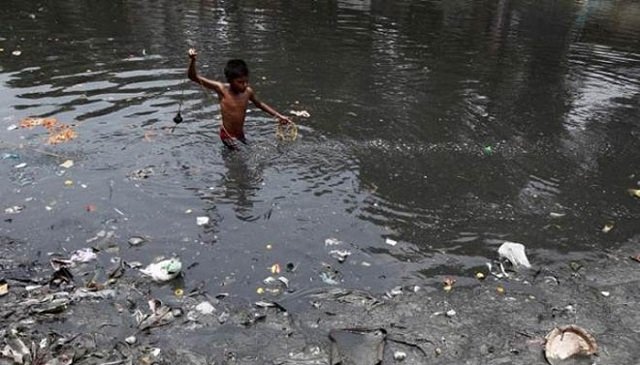
Water experts, academia and water rights activists have lauded the newly announced National Water Policy, 2018 and asked the Sindh government to establish a high-level think tank to support the government in protecting Sindh's water interests in the long-term.
During a civil society dialogue, 'Review of the National Water Policy, 2018 - Consensus and Concerns', organised by the Centre for Social Change and alMehran Rural Development Organisation (AMRDO), the speakers resolved that after 20 years, the federal government has recognised some of Sindh's very critical concerns, including implementation of the 1991 accord in letter and spirit, review of environmental flows downstream Kotri and an assessment and regulation of ground water.
The participants appreciated the spirit of the federal and provincial governments to develop a consensus for policy through the highest constitutional forum of the Council of Common Interest.
Water expert Abrar Kazi suggested that since Pakistan is a glacier melt dependent country and water flows are available only for three months, there is no need to speak about new dams but rather a serious need to review the overall water governance paradigm with special focus on conservation of water through small interventions at local levels and an emphasis on crop pattern change, bio-saline agriculture and water re-use practices.
First national water policy on the cards
Kazi said that despite its weaknesses, the policy has given an opportunity to Sindh to capitalise on its water share.
Centre for Social Change Executive Director Zulfiqar Halepoto explained the objective of the dialogue and appreciated the policy. He said that trans-boundary issues were supposed to be dealt with by either the foreign office or security agencies, but for the first time water issues with India and Afghanistan were recognised as an agenda of the federal and provincial governments respectively.
Water Sector Improvement Project Representative Umer Karim briefed the participants through a detailed presentation on how water-related institutions have developed a professional portfolio that supported the provincial chief minister in successfully lobbying for Sindh's interests in the new water policy.
Professor Mushtaque Mirani called the policy paper as a representative document, but said there was a need to involve farmers, water experts and academia and other stakeholders to maximise the legitimacy of democratic decisions.
At last a water policy
Sindh Abadgar Board representative Syed Nadeem Shah said that the document is missing substantiated data on water flows, ground water extraction and water consumption of municipal, agriculture and industrial sectors, but overall the government has done a tremendous job.
Sindh Irrigation and Drainage Authority representative Nazeer Essani said with the personal interest and efforts of the CM and irrigation secretary, the federal government has accommodated Sindh's concerns in the final document, such as implementation of the 1991 water accord, water security of riverine areas and delta. He, however, expressed concern on the low representation of Sindh in the national water council.
Dr Ismail Kumbhar from the Sindh Agriculture University in Tando Jam said that the policy's fundamental focus is food security and sustainable agriculture, but unfortunately, both basic commitments of the Sustainable Development Goals are not properly addressed in the document.
There is always space to improve the gaps and reset the given targets, he said, suggesting that as per the new policy's targets, universities should be tasked with doing research on all the 29 priority areas of the document.
CCI unanimously approves country’s first water policy
Environmentalist Nasir Ali Panhwar said that rural water supply and sanitation has not been adequately covered in the policy. He said that water must be allocated for sea intrusion, adding that Sindh should devise its own water policy by taking guidelines from the National Water Policy.
A number of civil society activists, youth, academia and concerned citizens attended the dialogue.

















COMMENTS
Comments are moderated and generally will be posted if they are on-topic and not abusive.
For more information, please see our Comments FAQ